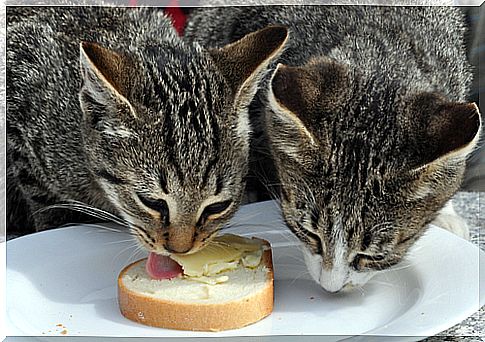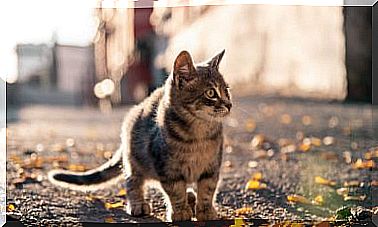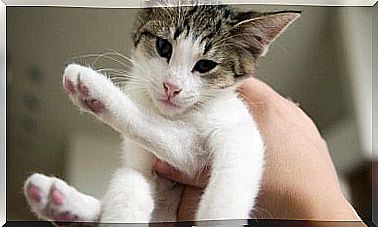How Do I Know If My Cat Is Allergic?

A cat has allergies when its immune system is overly sensitive to certain everyday substances and begins to identify them as dangerous. Sneezing, coughing, itchy skin, watery eyes, ear infections, and vomiting are some of the symptoms. But what kind of substances can cats be allergic to and how can they be treated?
What types of allergies exist in cats?
When cats eat foods that cause allergies, they usually have gastrointestinal problems such as diarrhea or vomiting. This situation can appear in cats at any age. There are some substances that are usually sensitive to them. Some of these substances can be pollen dust, mold, cleaning products, medicines, cigarette smoke or plastic among many others. Symptoms can be seasonal or non-seasonal and often begin in young cats, worsening with age.
Flea allergy dermatitis is also very common in cats. There are 15 different allergens in the saliva of these types of insects that can cause a reaction in felines. Just one bite is enough to trigger those kinds of reactions.
If you think your cat is allergic, you should take him to his vet. After conducting an exam, the professional will determine the origin of the allergic reaction. Many animals diagnosed with a food allergy will require home-cooked meals, but this must be done in conjunction with a specialist, as it requires a special protein and the balance of food must be careful.
The best way to treat allergies is to remove the offending allergens from the environment. In this sense, it is important to avoid contact with chemicals and some plants that can be toxic.
Contact dermatitis is another form of allergy. It is caused by exposure to a material to which the animal has become hypersensitive or allergic. It arises a few hours after contact with the responsible material. Plants, wool or medicines can be some of the causes.

Symptoms can be itching in areas where there is not much skin. Typical areas can be the chin, ears, toes, anus, and under the belly. Redness, pimples, and blisters are usually present.
Food allergies account for 57% of the causes of itching in cats. They can appear after five months. Although the vast majority of cases occur between 2 and 6 years.
A distinction must be made between allergies and food intolerance. The latter can cause diarrhea or vomiting. Fortunately, they can be eliminated with a diet free of offensive agents.
Several studies have shown that there are some ingredients that are more likely to cause food allergies. In cats, the most common are beef, lamb, shellfish, corn, soybeans, dairy products, and wheat gluten. The main symptom is itchy skin and can also include hair loss and excessive scratching.
On the other hand, sensitivity to environmental pollutants, pollen, and stress can cause asthma attacks in cats. For short-term relief, a vet may prescribe medications that will open up his airways. For long-term treatment, however, corticosteroids can be used.
In relation to the treatments, the vet may prescribe cortisone or steroids to help control the pollen allergy. Antihistamines like Benadryl can be used, but they work best as a preventative.
In case of itchy skin, fatty acid supplements and a shampoo can be used that can help prevent skin infection.
How to prevent allergies

- Try to minimize your cat’s exposure to suspected allergens.
- Use a high-quality food.
- Give your cat a fatty acid supplement that provides beneficial anti-inflammatory properties and improves the quality of its skin and coat.
- Use stainless steel or glass for food dishes and clean regularly.
- Brush your cat’s hair regularly.
- Wash bedding in hypoallergenic detergent in very hot water.
- Use products to combat fleas on your pets and take it regularly to your veterinarian for the necessary checks.









